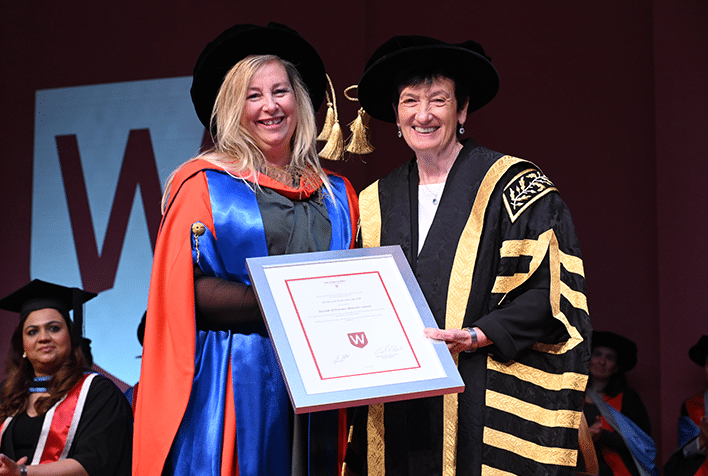
Professor Iona Novak’s work has been key to advancing the global understanding of cerebral palsy and developing innovative treatments and interventions.
“I am deeply honoured to have received this prestigious award. This recognition not only highlights the importance of our work in cerebral palsy research but also underscores the collective efforts of our dedicated team,” said Iona, CPA Chair of Allied Health, Head of Research Translation, The University of Sydney.
“Since 2006 the rate and severity of cerebral palsy has dropped by 40%. It is our mission to continue the hard work to discover more about CP, its preventions, interventions and, one day, a cure,” she added.
With a background in occupational therapy and a PhD focusing on the early detection and intervention of cerebral palsy, Professor Novak has led numerous groundbreaking studies. Her research has significantly influenced global health policies and practices, ensuring better outcomes for children with cerebral palsy and their families.
Alongside her work in regenerative medicine, Professor Novak is a co-founder of the Australian CP Register and is developing clinical practice guidelines to diagnose cerebral palsy early and defining best practice early interventions to improve independence for people with CP.
An Honorary Doctorate is a significant accolade that celebrates Professor Novak’s exceptional contributions to the advancement of science and her positive impact on society. Her efforts have not only advanced scientific knowledge but also translated into practical applications that directly benefit patients. Her work on early diagnosis and intervention strategies has been particularly impactful, providing crucial insights that help mitigate the effects of cerebral palsy from an early age.
In addition to her research, Professor Novak is celebrated for her advocacy and leadership. Her work entails collaborating between researchers, clinicians, and policymakers, ensuring that research findings are implemented in clinical settings. Her dedication to community engagement and education has also played a vital role in raising awareness and support for cerebral palsy.
This honorary doctorate is a testament to Professor Novak’s commitment to cerebral palsy research and her profound impact on the field. Her work continues to inspire colleagues, students, and the wider medical and cerebral palsy communities and her contributions will undoubtedly influence future generations of researchers and healthcare professionals.
Congratulations, Professor Iona Novak, on this well-deserved recognition.